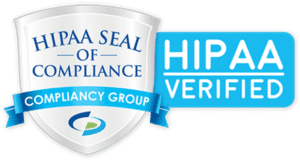Home » Healthcare Accounting
Healthcare Accounting Best Practices You Need to Implement
When you run out of funds to acquire the necessary supplies or pay workers on time, not only will you fail to offer essential services, but the workers’ morale can be affected significantly, leading to poor service delivery. In a nutshell, efficient accounting is key to offering excellent healthcare services.
This article explores why healthcare accounting is essential and provides tips on utilizing healthcare accounting strategically. By the end, you’ll be equipped with the best practices to implement to achieve efficiency in your healthcare accounting function. Please read on.
Benefits of Healthcare Accounting
The benefits of accounting are immense; we cannot emphasize enough. Generally, inefficient accounting is a handicap that can plague the profitability and ultimately the success of your healthcare business endlessly. Hence, having a functional accounting system is a must-have for the smooth running of the business. Below are four top benefits of accounting.
- Provide Accurate Records
Efficient accounting enables you to stay on top of your business’s financial transactions. It provides a thorough audit of the daily operations, so you can accurately predict its financial health at any time. Besides, consistent bookkeeping and accounting allow you to prepare financial statements quickly, compute your tax obligations, and effectively manage your cash flows. - Realistic Budgeting
Without accurate accounts, creating realistic budgets becomes a mirage. That’s why keeping good books is essential as you can accurately track expenses and incomes then allocate the revenue accordingly. In other words, with consistent accounting, your business can draft realistic budgets for optimal performance. - Enhance Compliance
Having a functional accounting department in your healthcare business is one step towards statutory compliance. Among other things, it ensures accurate tax computations and other statutory deductions are done and remitted on time. Besides, having professionals staffing the department ensures your facility remains compliant to GAAP (Generally Accepted Accounting Principles) as their profession requires them to stay abreast with any changes. - Evaluate Business Performance
Efficient accounting translates to up-to-date financial records. With accurate records, you can evaluate the business performance easily as they give a clear picture of your financial position – cash in hand, receivables, payables, etc. This allows you to make sound and timely financial decisions. Again, sound accounting reports enhance your credibility in the eyes of creditors and financiers as they can rely on them to evaluate your performance.
Having highlighted the benefits of healthcare accounting, let’s now discuss how you can utilize it strategically for optimal business performance.
Healthcare Accounting Best Practices to Utilize for Enhanced Business Performance
- Adopt Accrual Accounting Method
Essentially, there are two accounting methods – cash and accrual. The cash method is the simplest of the two as it acknowledges revenues and expenses when cash is received or paid. However, its main downside is that it does not provide a clear picture of your financial state.On the other hand, the accrual method acknowledges revenues and expenses when they’re earned or incurred. As such, it gives an accurate financial position of the business at any point in time, which enhances decision-making.
As much as both methods are approved, accrual accounting is the best of the two. Usually, businesses that don’t have accounting functions have a challenge using the accrual method as it’s more complex, often requiring some form of expertise. However, it’s the ideal method in the healthcare industry since patient claims take time to be paid. Assuming your accounting function is run by competent professionals, adopting the accrual method can enhance your reporting and decision-making processes.
- Hire Qualified Accounting Staff
Bookkeepers are essential in healthcare businesses as they help capture and maintain vital records. However, having qualified accounting staff can help you avoid many financial and compliance pitfalls. In addition to advising you on the best practices, qualified accounting staff promote timely preparation of financial statements and generally ensure smooth-running of the accounting function.
Accountants can also prepare financial forecasts and monitor controls to eliminate possible loss of revenue through fraud. With in-house accounting staff, claims management also becomes more effective. The team can perform systematic follow-ups to ensure the facility does not lose revenue by not pursuing denied claims. - Automate Your Accounting Function
The emergence of FinTech has significantly enhanced business financial processes. As much the initial cost outlay of automation software is hefty, transitioning to automated systems is financially empowering. Besides cutting down costs, in the long run, it increases efficiency, which boosts productivity and profitability significantly.Essentially, automation eliminates many errors synonymous with manual accounting in addition to simplifying time-consuming and cumbersome processes. This frees time for the accounting staff, allowing them to focus on non-repetitive tasks. Eventually, this improves the overall department productivity. Some possible automation areas include revenue management, supply chain, and payroll.
- Strategic Financial Planning
With a professionally managed accounting function, you have a powerful tool to measure your business performance and make strategic growth goals. As earlier discussed, you can rely on the financial records to determine your position and make essential decisions. Besides, with the help of your accounting team, you can lay down long-term business strategic plans and bank on the team to provide guidance and frequent reports on how you’re fairing. - Track Your Expenses
Without in-house accounting staff, tracking expenses may be overwhelming. However, this is necessary as it helps you remain on top of your business operations. Without a clear report of your expenditures, your business will likely get into perpetual cash flow issues. On the other hand, when you have accurate historical data of your expenses, you can anticipate future expenditures hence plan how to finance them. This way, you can guarantee smooth operations by ensuring the necessary provisions are always available.And the good thing is that you can easily automate the expense tracking process to increase accuracy and save time. Having expenditure capturing software also eliminates the risk of incomplete records due to possible fatigue.
- Implement Cost-Saving Strategies
Providing quality and accessible healthcare is the dream of every healthcare provider. Health facilities need to remain profitable, despite the quest for making the services as affordable as possible. However, striking this balance can be an elusive goal for many, but it’s not unreachable. One way of achieving this is cutting costs as much as possible. This way, you can adjust your pricing downwards without affecting the profit margins.With an in-house accounting function, you can implement cost-saving strategies with ease. For instance, the accounting team can track expenses to identify those that don’t contribute to better care for elimination. Having a qualified team also allows you to explore automation to take care of time-consuming tasks and ultimately cut costs. In return, this can lead to improved productivity and ultimately boost profitability.
- Tighten Your Revenue Cycle Management
In the healthcare industry, revenue cycle management (RCM) entails revenue generation by collecting payments for medical bills. The system tracks revenue from the initial patient encounter – appointment – until payment collection. Usually, RCM follows the following steps; registration, charge capture, coding, claims submission, insurer communication, payment collection, and medical service review.It’s estimated that inefficiency in claim processing cost between $21-210 billion per year. Besides, 65% of rejected claims are never resubmitted. Your accounting function can tighten the revenue cycle management to ensure accurate claim processing, step up claim follow-up, and fix denials for resubmitting. This way, you can minimize revenue loss significantly by ensuring all the services offered are paid.
- Compliance to GAAP (General Accepted Accounting Principles)
Lastly, running an accounting function enables you to implement Generally Accepted Accounting Principles in your business procedures. Following accounting guidelines is essential because it raises your fundability, as lenders can rely on your records to have an accurate image of your financial position.Essentially, the principles require you to adhere to specific standards when accounting for your business transactions. Some of the primary principles include consistency, permanent methods, non-compensation, prudence, regularity, sincerity, good faith, materiality, continuity, and periodicity.
Step Up Your Healthcare Accounting for Improved Business Performance
Efficient accounting is the key to your healthcare business’ financial health. Without a seamless accounting system, your day-to-day operations can suffer immensely. In return, this can affect the quality of your services and eventually hurt your bottom line. However, implementing the above best practices can help you rise above cash flow and compliance-related challenges for enhanced business performance.
Not Sure Where to Begin?
Allow us to hold your hand. At VIE Healthcare, we are a team of cost consultants, analysts, technology specialists, and clinicians committed to helping healthcare businesses such as yours improve their margins. Since 1999, we have been assisting businesses to achieve real cost savings and improved financial performance through custom and innovative solutions.
Ready to work with us?
Schedule a call now, and our team will be glad to listen and assist accordingly.
Three Ways to Work with VIE Healthcare
- Benchmark a vendor contract – either an existing contract or a new agreement.
- We can support your team with their cost savings initiatives to add resources and expertise. We set a bold cost savings goal and work together to achieve it.
- VIE can perform a cost savings opportunity assessment. We dig deep into all of your spend and uncover unique areas of cost savings.



